June 5, 1911 changed the course of world history.
(Baonghean.vn) - 110 years ago, on June 5, 1911, at Nha Rong Wharf (Saigon), President Ho Chi Minh, then 21 years old, boarded the French ship L'Admiral Latouche Tréville and applied to be a kitchen assistant to begin his great ambition. From here, the flow of world history changed...
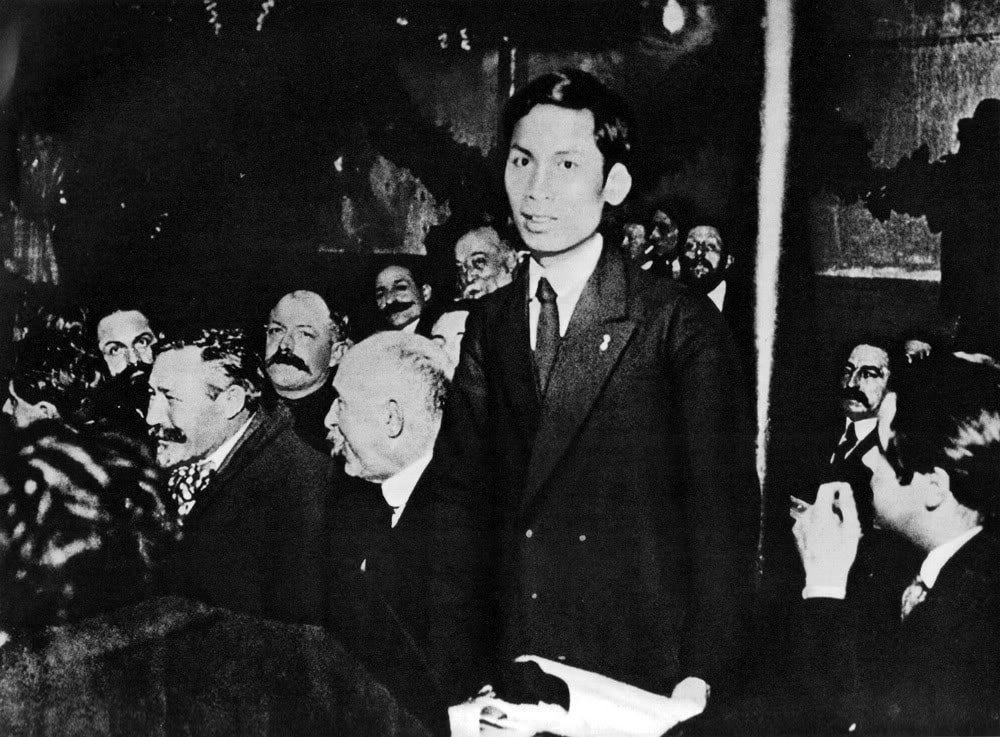 |
| President Ho Chi Minh at the 18th Congress of the French Socialist Party in 1920 and he participated in founding the French Communist Party. Historical photo |
The first to convict and execute a sentence against colonialism
On his journey to find a way to save the country, President Ho Chi Minh visited France, the US, and the UK... In these places, he studied some of the most typical bourgeois revolutions of modern times and realized the nature of the Western capitalist regime:"Internally, it deprives workers and peasants, externally, it oppresses the colonies"and conclusion"The capitalist revolution is a revolution that has not yet arrived."".
In 1919, President Ho Chi Minh joined the French Socialist Party. In meetings, he often denounced the crimes of colonialism, called on his comrades to help the revolution in the colonies, and criticized opinions that disregarded this issue:“If you do not condemn colonialism, if you do not defend the colonial peoples, what kind of revolution are you doing? Not only did I attend the meetings of my own party cell, I also went to other party cells to defend “my” position…”.
At the 18th Congress of the French Socialist Party held in the city of Tours from December 25 to 30, 1920, President Ho Chi Minh, as a representative of the Indochina colonies, on behalf of all humanity, called for help to help the colonies gain independence. He said:“In the name of all humanity… we appeal: Comrades, save us!”.
Responding to the question of why he approved of the Third International from female comrade Rose (who took the shorthand minutes of the Congress), He said: “I understand clearly that the Third International pays great attention to the issue of colonial liberation. The Third International says it will help oppressed peoples regain their freedom and independence. The Second International does not mention the fate of the colonies, so I vote for the Third International.”.
After that, he worked in the French Communist Party and with a number of comrades from colonies such as Algeria, Tunisia, Madagascar... founded the Union of Colonial Peoples (1921).
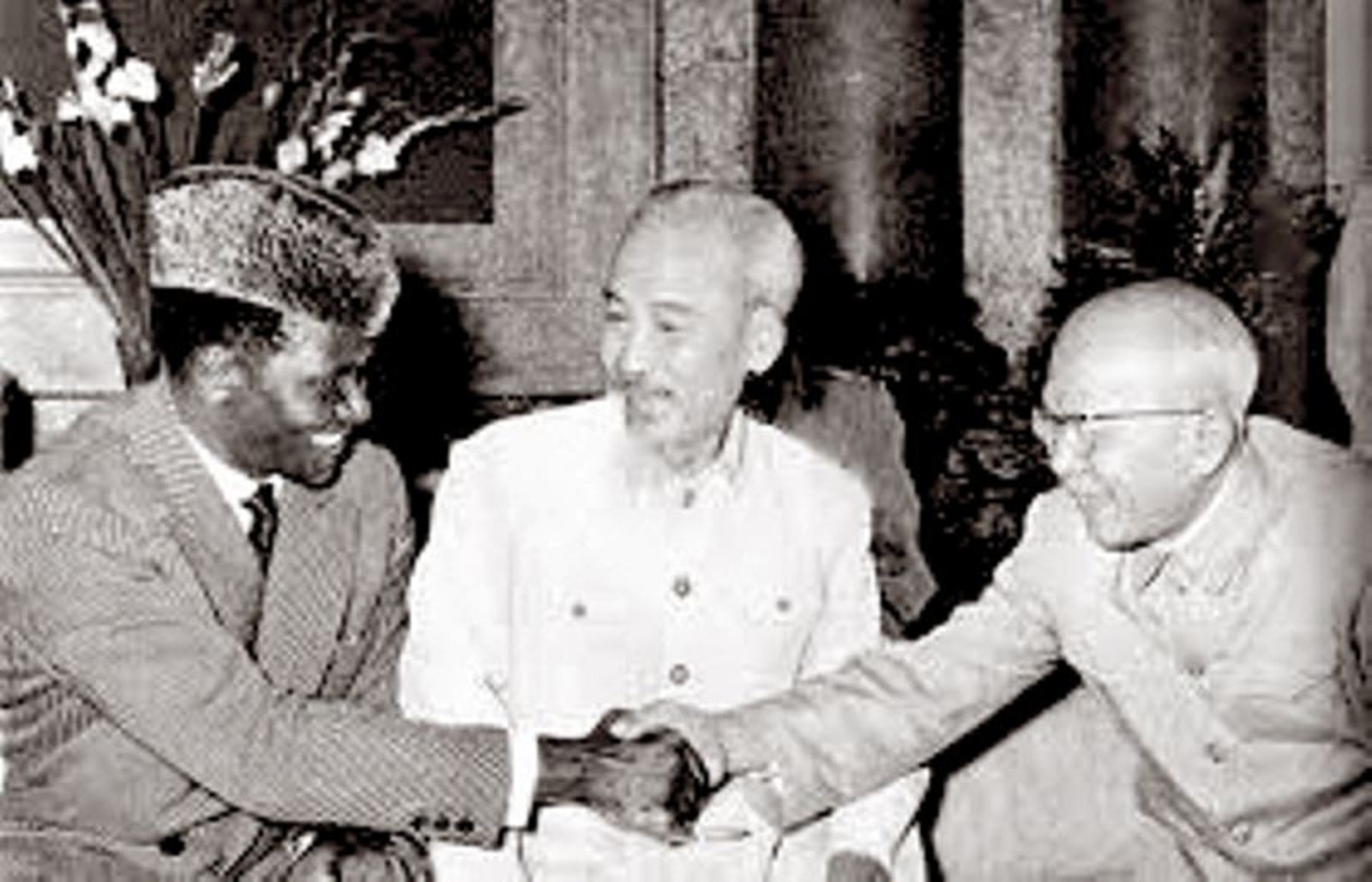 |
| President Ho Chi Minh and Vice President Ton Duc Thang received the President of the Republic of Guinea in Africa, Mr. Ahmed Sékou Touré, who visited our country in September 1960. Historical photo |
President Ho Chi Minh was the first to clearly see the close connection between the colonial proletarian revolution and the proletarian revolution in the mother country. He analyzed that the power of capitalism was concentrated in the colonies, not in the mother country. To suppress the revolutionary movement in other colonies and the revolution in the mother country, the capitalists used the power of soldiers in their entire colonial system and this large army was commanded by those with colonial minds.
In the article “Indochina and the Pacific” published in the International Correspondence (Inprekorr) journal of the Communist International on March 19, 1924, he pointed out: “Today imperialism has reached a level of almost scientific perfection. It uses the white proletarians to conquer the proletarians of the colonies. Then it sends the proletarians of one colony to fight the proletarians of another colony. Finally, it uses the proletarians of the colonies to dominate the white proletarians.".
In June 1924 at the Fifth Congress of the Third International, President Ho Chi Minh emphasized: “Not only does the colonial revolution not depend on the proletarian revolution in the mother country, but it can win first” and “while abolishing one of the conditions for the existence of capitalism, imperialism, they can help their brothers in the West in the task of complete liberation”.
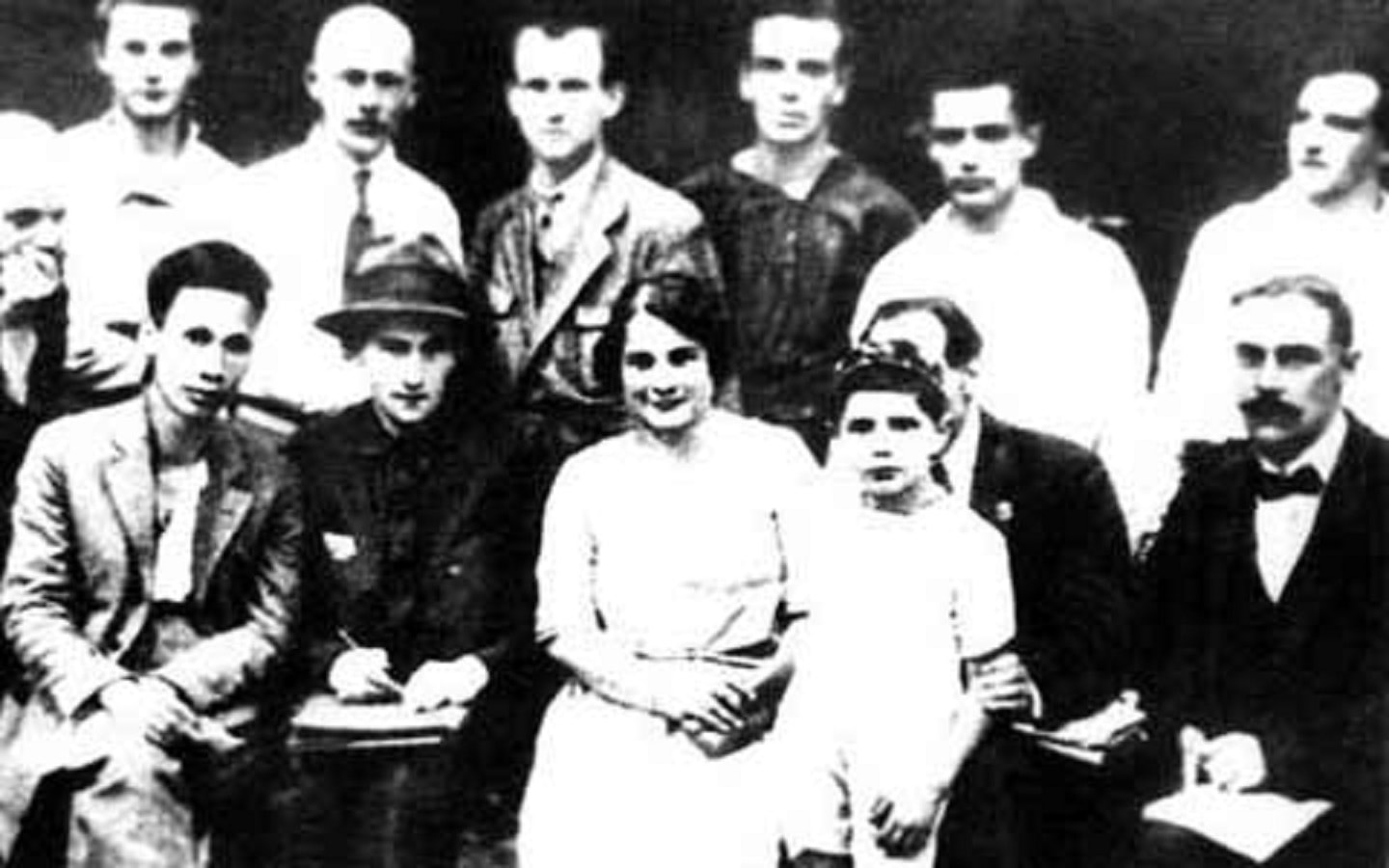 |
| President Ho Chi Minh (first left) with delegates attending the 5th Congress of the Communist International in Moscow, the Soviet Union in 1924. Historical photo |
He also criticized opinions that belittled the revolution in the colonies:“Comrades, please forgive my boldness, but I cannot help but tell you that, after listening to the speeches of comrades in the mother country, I have the impression that they want to kill the snake by the tail. All of you comrades know that at present the venom and vitality of the capitalist snake is more concentrated in the colonies than in the mother country. The colonies supply raw materials for the factories; the colonies supply soldiers for the imperialist armies. The colonies become the foundation of the counter-revolutionary forces. Yet, when you talk about revolution, comrades, you despise the colonies.”
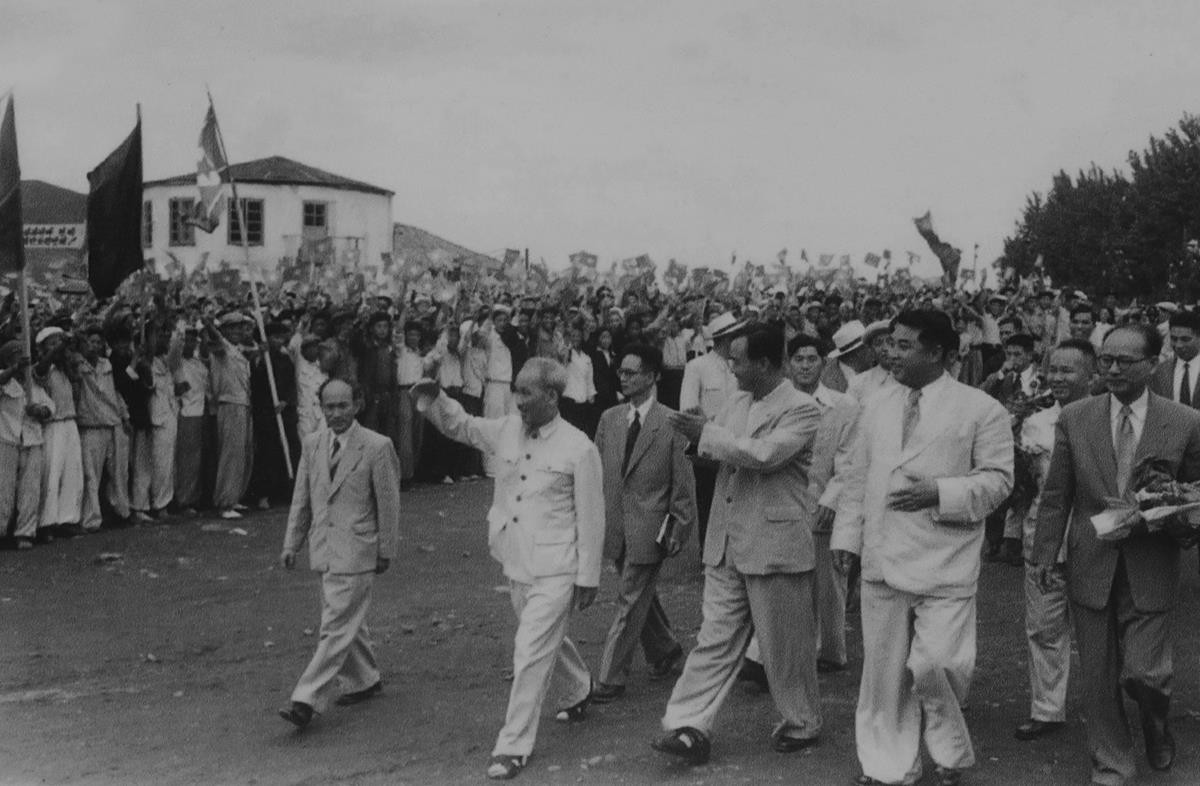 |
| President Ho Chi Minh visited an agricultural cooperative in Korea in July 1957. Photo courtesy |
Afterwards, he was elected as a Standing Member of the Eastern Department, in charge of the Southern Bureau of the Third International. Next, the Third International sent him to Guangzhou (China) to work to promote all conditions to build a communist organization in Indochina and help revolutionary representatives in Southeast Asian countries.
In 1925, he and his comrades from China, India, Korea, Indonesia, Burma... participated in founding the Association of Oppressed Nations. Next, he founded the Vietnam Revolutionary Youth Association (June 1925) and then the Communist Party of Vietnam (February 1930).
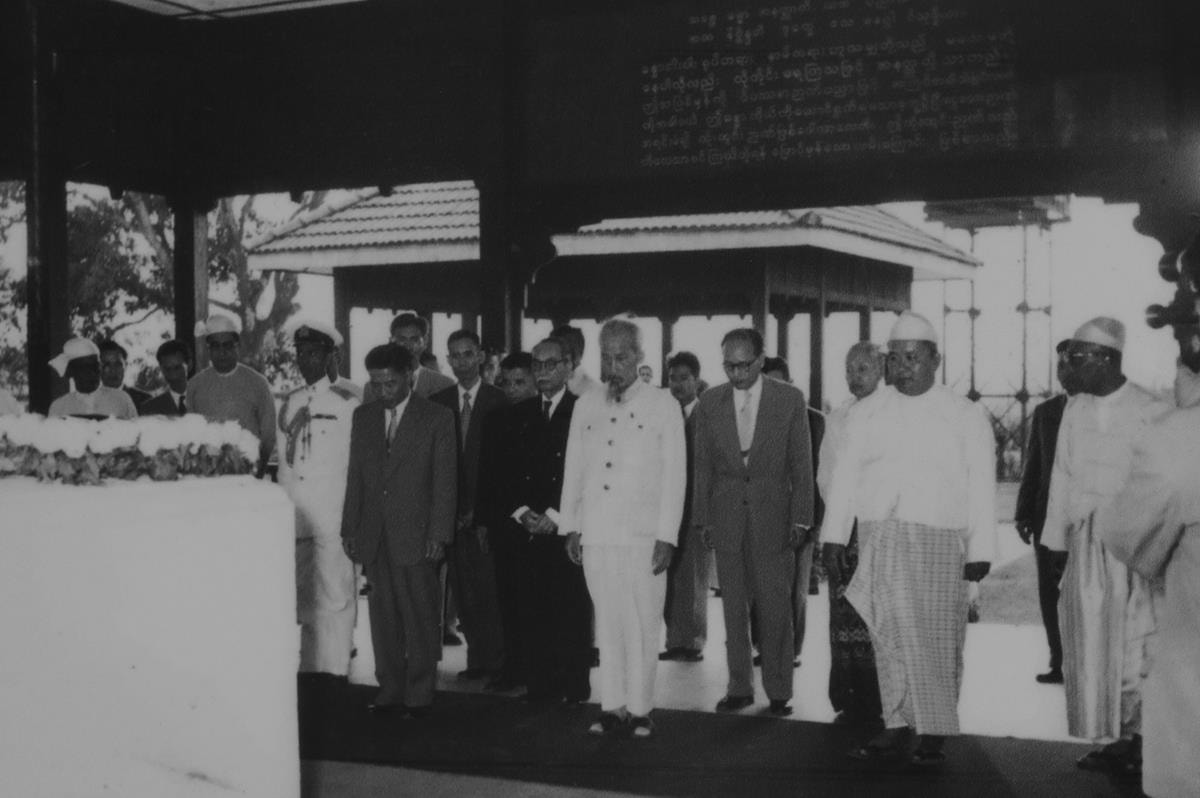 |
| President Ho Chi Minh pays his respects at the martyrs' grave in Yangon (Myanmar) in 1958. Photo courtesy |
"He developed human rights into national rights"
At the international conference commemorating the 100th anniversary of President Ho Chi Minh's birth in 1990, General Vo Nguyen Giap, Vice Chairman of the Council of Ministers, commented:“With the Tours Congress, a colonial citizen became one of the founders of the French Communist Party in the motherland. With the organization of the Colonial Union, a countryman who had lost his country not only worried about liberating his own people but also worried about fighting for the liberation of his brother peoples… Nguyen Ai Quoc was the first person to write “The Verdict on the Colonial Regime”, and he was also the one who, together with his people, carried out the verdict”.
On September 25, 1969, at a rally in Tokyo (Japan) to commemorate President Ho Chi Minh, Professor Singo Sibata commented:“First of all, we must see his contributions to deepening and developing the theory of Leninism on national and colonial issues... Uncle Ho Chi Minh's contributions really opened a new stage in the theories on national and colonial issues. At that time, there were very few Marxists like Uncle Ho Chi Minh, who were born in a colonial country and had experienced a life like that in Vietnam as well as in many other colonies. Lenin himself did not have such experiences. Uncle Ho Chi Minh was one of the very few Marxists who had such experiences. It was this that allowed him to further develop the theory on national and colonial issues.”Professor Singo Sibata also emphasized: "The famous contribution of Uncle Ho Chi Minh is that he developed human rights into national rights."
The flag promotes peace, national independence, democracy and social progress in the world
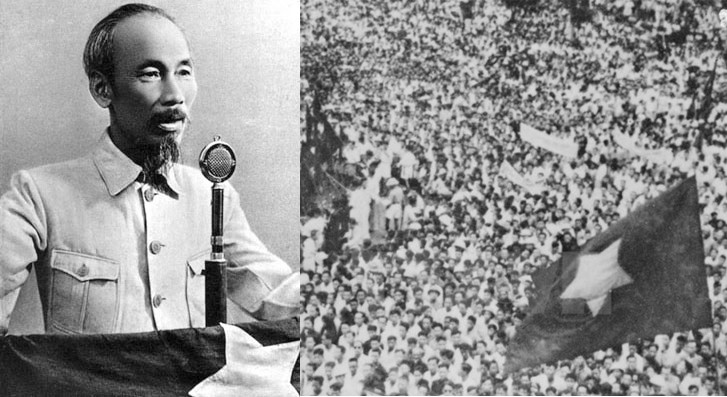 |
| President Ho Chi Minh read the Declaration of Independence giving birth to the Democratic Republic of Vietnam (now the Socialist Republic of Vietnam). Historical photo |
The success of the August Revolution in 1945 inspired the national liberation movement in the world. Because if the Declaration of Independence of the United States signaled the collapse of the British colonial regime in 13 North American colonies, the Declaration of Independence of the Democratic Republic of Vietnam with the statement: "All peoples in the world are born equal, all peoples have the right to live, to be happy and free" signaled the collapse of colonialism all over the world. In the book“The world talks about Vietnam”, British scholar Thomas Hodgkin assessed the August Revolution of 1945 in Vietnam as the “most important event in world history since the October Revolution in Russia”".
Thomas Hodgkin wrote:“It was a revolution led by the Communist Party, a Party that had only been in existence for 15 years. It was the first revolution that succeeded in overthrowing the colonial regime… Thus, the August Revolution marked the beginning of a new era, it marked the boundary of the colonial era that began to give way to the era of decolonization”.
Signaling the dissolution of the colonies
However, the French colonialists quickly returned to invade Vietnam. But they were defeated by the Dien Bien Phu victory that “resounded throughout the five continents and shook the earth” (May 7, 1954). Regarding the Dien Bien Phu victory, American historian Berna Fol commented:"The first time a colonial power was defeated by a colony."French journalist Jules Roy noted:“It was one of the great failures of the West, signaling the disintegration of the colonies”. Jean Pouget, a former officer in the French expeditionary force, bitterly commented:“The French defeat at Dien Bien Phu marked the end of the colonial period and the beginning of the era of independence of the third world.”.
Comrade William Foster - Chairman of the Communist Party of the USA, also wrote in the Worker Daily (USA) on May 10, 1954 as follows: "This failure was not only a miserable failure of the French colonialists, who had risked their lives to plot to invade the rich Indochina country, but first of all, it was a great failure of the American imperialists' war of aggression plan.
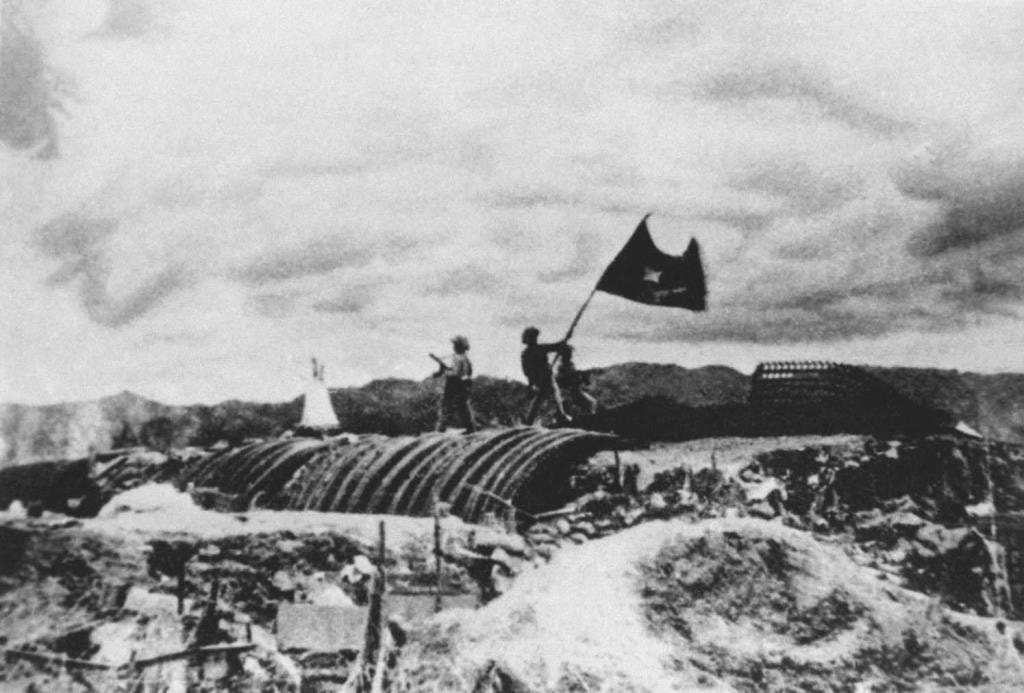 |
| Dien Bien Phu victory on May 7, 1954. |
In 1955, just one year after the Dien Bien Phu victory, the Conference of 29 Asian and African countries met in Bandung (Indonesia). For the first time in history, nations that had been marginalized for hundreds of years united to publicly condemn colonialism and cooperate to help each other for the purpose of peace and national independence. At this conference, Vietnamese delegates were welcomed as heroes.
As a result, just four years after the Dien Bien Phu victory, 1960 went down in history as the “Year of Africa” with 17 African countries declaring independence. By 1968, 39 countries in the continent (including 85% of the territory and 93% of the population) had won the war for national independence.
President Ho Chi Minh is closely associated with the resistance wars against France and the resistance wars against the US of the Vietnamese people - the flag for the struggle of oppressed peoples all over the world against colonial empires. Ahmed Sékou Touré, President of the Republic of Guinea from 1958 to 1984, commented:“Outstanding and brave, brother Ho Chi Minh is a good example for the Asian and African peoples in the noble struggle against imperialism, against old and new colonialism”.
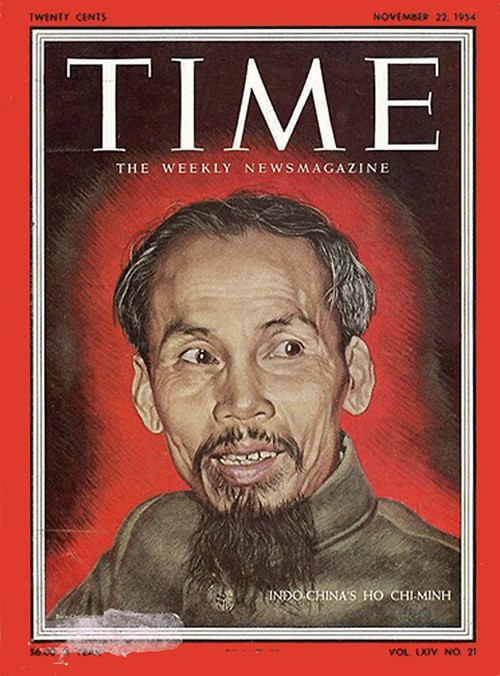 |
| President Ho Chi Minh on the cover of Time magazine. |
His life and career "went beyond the borders of his Fatherland"
President Ho Chi Minh devoted his entire life to the revolutionary cause of our people and the people of the world. The eulogy of the Central Executive Committee of the Vietnam Workers' Party, read by Comrade Le Duan, First Secretary, at the solemn memorial service for President Ho Chi Minh on September 9, 1969, stated:“President Ho devoted his entire life to the revolutionary cause of our people and the people of the world… His heart and mind were devoted to the Vietnamese people and also to the proletariat and oppressed peoples all over the world. As a loyal student of Marx and Lenin, President Ho was not only a great patriot, but also an outstanding soldier in the international communist movement and the national liberation movement of the 20th century.”Therefore, the "Red Rights" Newspaper of the Socialist Republic of Czechoslovakia on September 9, 1969 published an article about his historic Testament, emphasizing:“Uncle Ho and his Testament belong to all communist, workers’ and revolutionary movements in the world. He is listed among those whose life and career have gone beyond the borders of his Fatherland.”.
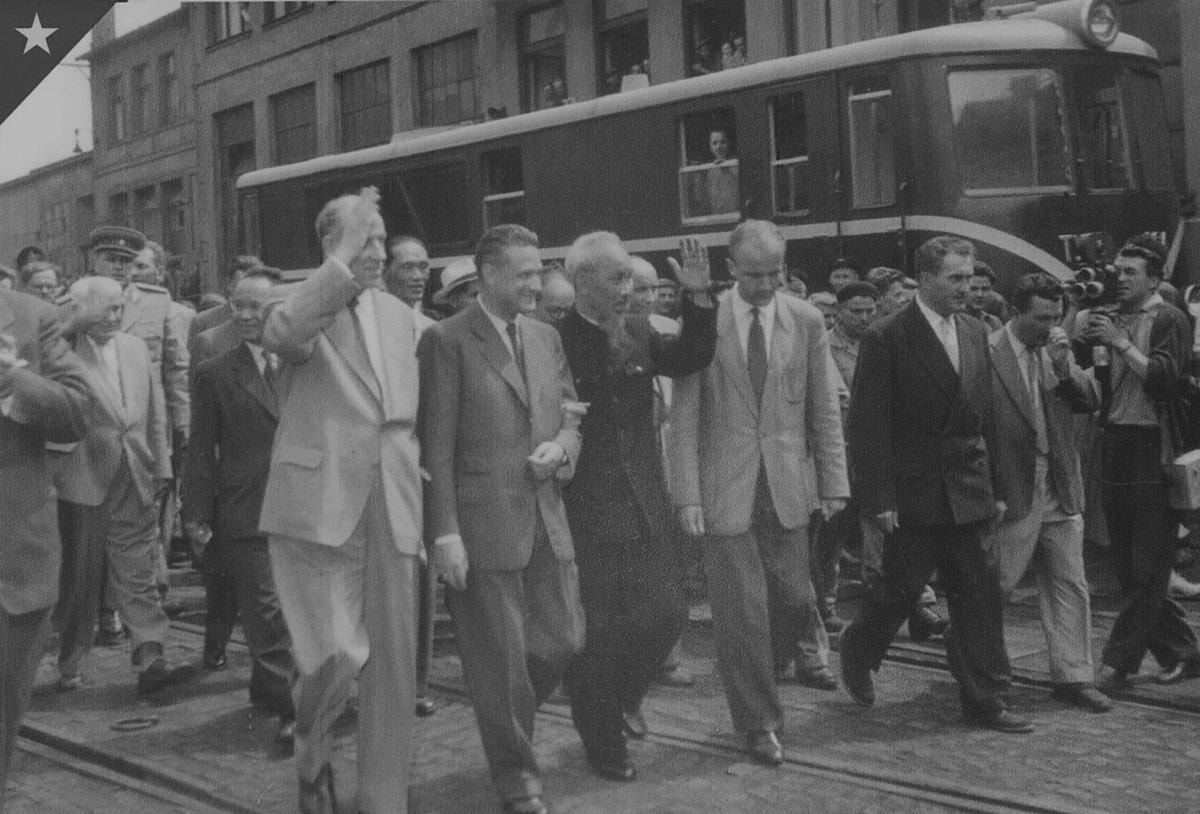 |
| President Ho Chi Minh visited the CKD Sokolovo Locomotive Manufacturing Enterprise (Czechoslovakia) in 1957. Photo archive |
Speaking in Hanoi on September 12, 1973 during his first visit to Vietnam, Cuban President Fidel Castro emphasized:“The cause of national liberation and the cause of social liberation are two key points in his doctrine. President Ho Chi Minh also saw that backward nations due to the oppression and exploitation of colonialism could make great leaps in history and build their economies along the path of socialism, without having to go through the sacrifices and horrors of capitalism… We think that all oppressed nations around the world will find in the life of Comrade Ho Chi Minh, in his political ideology, in his clear tactical and strategic views, an extremely rich source of knowledge to solve their own problems.”.
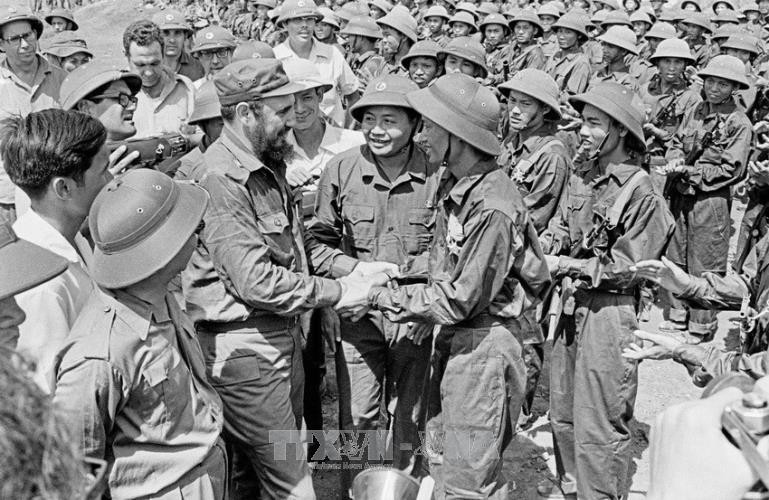 |
| Cuban President Fidel Castro with soldiers of Khe Sanh Battalion, Tri Thien Hue Liberation Army, during his visit to the liberated area of Quang Tri, September 15, 1973. Photo: VNA |
"Wherever there is a fight for peace and justice, there is Ho Chi Minh"
Romet Chandra, President of the World Peace Council from 1977 to 1995, commented:“Wherever there is a fight for independence and freedom, there is Ho Chi Minh and the Ho Chi Minh flag flies high. Wherever there is a fight for peace and justice, there is Ho Chi Minh and the Ho Chi Minh flag flies high. Wherever people fight for a new world and against poverty, there is Ho Chi Minh and the Ho Chi Minh flag flies high.”
At the International Conference commemorating the 100th anniversary of President Ho Chi Minh's birth in 1990, Dr. Modagat Ahmet - Director of the United Nations Educational, Scientific and Cultural Organization (UNESCO) in charge of the Asia-Pacific cultural region commented:“He will be remembered not only as the liberator of the occupied Fatherland and humanity, but also asA modern-day philosopher who brings new vision and hope to those who fight relentlessly to eradicate injustice and inequality from this earth.”
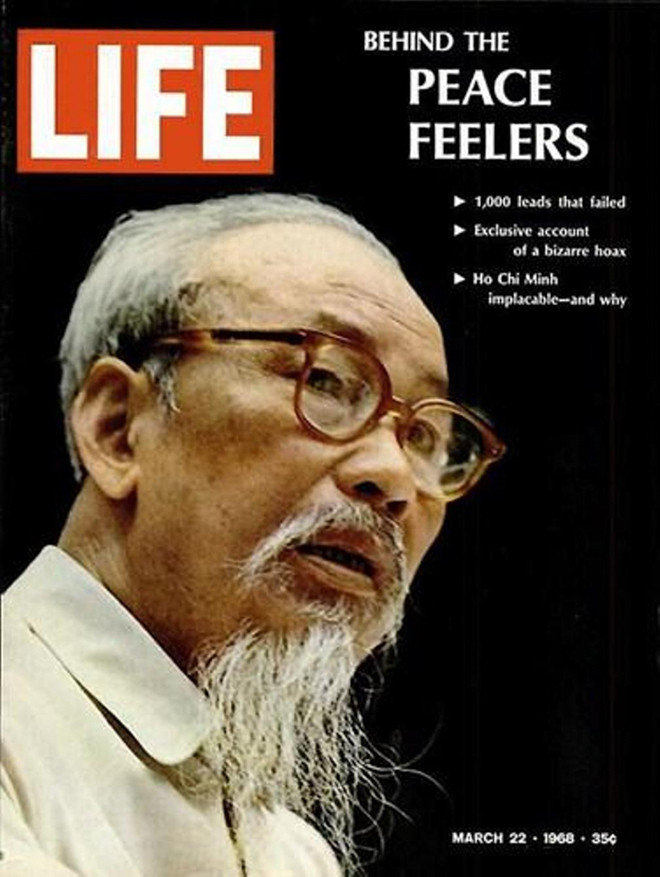 |
| Portrait of President Ho Chi Minh on the cover of Life magazine. |
Therefore, TIME, one of the most famous and prestigious newspapers in America, commented:“President Ho Chi Minh is one of the figures who changed the course of human history, made modern history and was the greatest figure in Asia in the 20th century.”
Up to now, there have been 35 statues and monuments of President Ho Chi Minh built in 20 countries in Asia, Europe, America, Africa (India, China, Philippines, Singapore, Sri Lanka, Laos, Thailand, France, Russia, Hungary, Cuba, Venezuela, Argentina, Mexico, Chile, Panama, Dominica, Madagascar...). There are many streets and avenues (France alone has 7 streets, Italy has 21 streets), 16 memorial areas and parks, 6 memorial steles, 6 schools named after him abroad.
Information and cited documents:
Ho Chi Minh: Complete Works, Volume 1, Volume 2, National Political Publishing House.
Central Ideological and Cultural Committee, Commemorating the 100th Birthday of President Ho Chi Minh, Propaganda Publishing House, Hanoi.
The world praises and mourns President Ho Chi Minh, Truth Publishing House, Hanoi.
Thomas Hodgkin, “The World Talks About Vietnam”, Vol. 2, Institute of Social Sciences Information, Hanoi.
Many authors, “Fidel Castro and Vietnam: Unforgettable Memories”, Publishing House.World.
UNESCO and Vietnam Social Sciences Committee, International Conference on President Ho Chi Minh (excerpt from international delegates' speeches), Social Sciences Publishing House.

